Does Hideo Kojima Have the Rights to Metal Gear Again
The Truth Behind Konami And Kojima'southward Carve up
The Metal Gear franchise is famous for its twisty, complicated plotlines, but the best tale that the franchise ever spawned doesn't have annihilation to practise with clones, nanobots, or giant mechs. It'southward the very real story of how the man backside Metal Gear, Hideo Kojima, broke upward with his publisher, Konami, where he'd worked for the better part of 30 years. Information technology's a tragedy full of murky and sinister motives, some very shifty behavior, more one backstabbing, and all kinds of backroom deals — and, amazingly, it's all true.
Neither Konami nor Kojima accept ever come up out and said exactly what went downwardly, but past this point, nosotros have enough show to put the pieces together ourselves. So, we have. Here is the story of how one of the most famous game developers in history fell from grace and was punished by a powerful, vindictive company. Sit for this one. It'southward a doozy.
The early years
Hideo Kojima and Konami get style, way back. Kojima joined the company in 1986, after Super Mario Bros. inspired him to devote his life to making video games. Instead of Konami's Famicom squad, nevertheless, Kojima was put to work making games for the MSX, a home PC that was popular in Japan. His first game equally a designer, a plot-heavy platformer called Lost Warld, was cancelled early in production, and Kojima took over an action title called Metallic Gear from a co-worker.
You probably know what happened next. In order to account for the MSX's shortcomings — only a couple of enemies could appear on screen at a time, for example — Kojima focused the action on stealth, not gainsay, inventing a whole genre in the process. Metallic Gear was a success, and Kojima made a sequel, in improver to the narrative adventure games Snatcher and Policenauts.
In 1998, Kojima released Metal Gear Solid for the PlayStation. It inverse everything. Metallic Gear Solid'south cinematic storytelling and unique, stealth-based gameplay led many critics to crown it the best video game of all time. Kojima became an international superstar, and Metal Gear became Konami'south flagship franchise. Many successful sequels followed.
Riding high
Past 2014, Konami's and Kojima's fates seemed inextricably connected. Kojima held the championship of Konami'south Executive Content Officer, meaning that he had a say in every game it produced. Metallic Gear Solid 5: Ground Zeroes launched that year to rave reviews; Metal Gear Solid 5: The Phantom Pain was well into development.
In addition, in summertime 2014, a mysterious game chosen P.T. arrived on the PlayStation store. It immediately took the net by storm. Afterward players worked their way through P.T.'south looping corridor, which was filled with both spooky puzzles and jump scares, they learned that P.T. stood for "playable teaser." And what was information technology teasing? Why, nothing less than a Silent Hill reboot co-directed by Kojima and the Oscar-nominated director of Pan'due south Labyrinth, Guillermo del Toro.
Given how much Kojima was inspired by Hollywood films, it seemed like a match made in sky, and Kojima'due south futurity looked brilliant. Spoiler: information technology didn't terminal.
The landscape shifts
To truly understand why Kojima and Konami broke upward, you have to get back to 2010, when Konami launched one of its biggest successes. It's called Dragon Collection, and it changed everything.
While Konami had built its name on hardcore arcade and console titles similar Metal Gear Solid, Castlevania, Frogger, and Contra, Dragon Collection was a casual card-collecting game that ran on social networks (and, soon thereafter, mobile phones). Its controls were basic — early on smartphones couldn't handle much input — and while Dragon Collection had some RPG-similar elements, its menu-based mechanics were simple plenty that near anyone could choice it up pretty easily.
And they did. Shortly, millions of people in Japan were playing Dragon Collection. It wasn't only a hit: it was a sensation, and many copycats followed. Even better, at to the lowest degree from Konami's point of view? Dragon Collection was cheap to make, and it brought in a ton of cash. Konami'south executives realized that they didn't demand to make lavish AAA games to plow a turn a profit. For improve or for worse, inexpensive mobile titles would piece of work just fine.
Information technology begins
In early 2015, Kojima announced that Metal Gear Solid 5: The Phantom Pain would arrive on consoles and PCs the post-obit September. Fans rejoiced. Effectually the same time, however, the tide began to modify — and nobody noticed until information technology was as well late.
In March 2015, Konami announced that it would undergo a corporate restructuring in which the company would move from a studio-based model, in which private developers were responsible for their own projects, to a "a headquarters-controlled system" that put the corporation in accuse. The next day, it also unveiled a brand new executive lath. Surprisingly, Kojima wasn't mentioned in either press release.
With the benefit of hindsight, it's obvious what was happening. During the shuffle, Kojima lost his Executive Content Officer title. His studio, Kojima Productions, was suddenly just another cog in Konami'south corporate machine. The Kojima-Konami split had begun. While it wasn't clear so, it would be just a few days later.
Kojima no more
Hideo Kojima has always been inspired by blockbuster films — Metallic Gear was influenced past The Great Escape, for example — and as a designer, he often treats himself like a Hollywood managing director. Every bit such, his proper noun is all over the Metallic Gear games. Why shouldn't it be? Kojima is 1 of the few game developers who's a household name, and his involvement in a championship is a large marketing betoken. It's in everyone's all-time involvement to put his personal branding forepart and heart.
That'southward how people knew that something was afoot. On March 16, 2015, the same day that Konami's restructuring took outcome, Konami removed Kojima'due south name from everything information technology controlled. He was scrubbed from the Metal Gear Solid 5 website and all related marketing materials. His U.s.-based studio, Kojima Productions Los Angeles, was renamed Konami Los Angeles Studio.
People caught on quickly, and started to wonder if Kojima and Konami were done. A few days later, the two issued a articulation argument confirming that Kojima was still working on MGS5, just did not hash out what would happen subsequently the game's release.At that place was a good reason for that: as far as Kojima'due south hereafter at Konami was concerned, he didn't have one.
The pause-up becomes official
The same twenty-four hour period that Konami and Kojima released their statement, GameSpot ran a study confirming what many had already guessed: Kojima's days at Konami were numbered, thanks to unspecified "fallout" between the two. The famed game designer would leave the company shortly after the release of Metal Gear Solid five, ending a three-decade relationship.
The article didn't stop there. In improver to losing his job, GameSpot said, Kojima and the remainder of his staff had been downgraded from full employees to contractors. Senior staff members were cut off from the rest of the company as Konami limited their access to its e-mail servers, telephone lines, and internet service. Finally, Kojima and other producers wouldn't exist immune to promote MGS5, fifty-fifty though Kojima is a celebrity in the video game industry.
Later, nosotros learned that things were actually even worse. For the final half-dozen months of MGS5'south development, Kojima was "locked in a carve up room" and forced to work on a different floor than the residue of his staff, communicating with others via proxy. And yet, somehow, that was merely the first of the indignities.
Metallic Gear grinds ahead
In yet some other prove of disrespect, Konami fabricated information technology very clear that it planned to continue the Metal Gear franchise without Kojima at the captain. From a business perspective, that's understandable. It's a big serial. Kojima created the Metallic Gear franchise and directed all of its major installments, though. His personal manner is all over the thing. It'south non really Metal Gear without him.
Regardless, at the exact same fourth dimension that Konami was erasing Kojima's proper noun from its website, taking his executive title, and robbing him of his job, a post on Konami's careers website claimed that a brand new Metal Gear game was already in the works. Given the news (as well as Kojima's previous claims that Metal Gear Solid 5 would be his concluding), information technology seemed obvious that Kojima wasn't involved. To exist off-white, Konami owns Metallic Gear, and it can exercise what it wants with it. Announcing a new Metal Gear while they're in the process of firing its creator, the human who gave it its signature voice, though? That'southward ice cold.
That "new" game concluded up being Metal Gear Survive, past the manner. It flopped. Difficult.
Just why?
Thanks to corporate non-disclosure agreements, we'll probably never get an official reason for why Konami and Kojima split, merely it's not hard to connect the dots. In May 2015, Konami's and so-new president Hideki Hayakawa confirmed that Konami's principal focus would be mobile gaming, not console titles. Console games would notwithstanding stick around, merely they were no longer the visitor's priority. In fact, by that betoken, many of Konami's biggest console franchises had already started transitioning to mobile, where they'd been pretty successful.
Yous tin can trace this shift back to Dragon Collection. Not only was Dragon Drove Konami'south start big mobile hitting, but guess who served as its executive producer? Yup, that'due south correct: Hideki Hayakawa. In fact, in an interview with Polygon, Hayakawa claimed that he'd been driving Konami'south move into mobile games since summer 2014, when he became Konami's vice president.
Hayakawa also claimed that Konami's former corporate structure made it difficult for the company to react to changes — like, say, the rise of mobile gaming. Hence, the corporate restructuring. Whether that was true or not, ane affair was very clear: at the new Konami, there was no space for Kojima or the lavish, large-budget games that he makes.
Plenty blame to go effectually
On the other hand, mayhap — only peradventure — this feud isn't entirely Konami's fault. Some evidence indicates that Kojima shoulders some of the blame, as well.
In an interview, Metal Gear Solid composer Rika Muranaka revealed that Kojima isn't all that easy to work with. He'd often pay Muranaka to write songs, only to reject them one time she delivered a finished product. According to Muranaka, that was par for the course. Every bit Muranaka tells the story, Kojima refused to cut corners during game evolution, and spent lots of money adding extra features to Metal Gear Solid five, delaying the game. Because Kojima worked on a bacon, the ever-increasing budget and numerous delays didn't affect him, just they did affect Konami's bottom line. Ultimately, that tension ruined their human relationship.
That all adds upward. Kojima has admitted that he's not interested in the business side of game development, and given his perfectionist streak, it wouldn't exist shocking if he went over-budget. Kojima is a master designer, but he'south non a swell businessman — and it ended up costing him.
The hills go silent
Whatever caused the rift between Kojima and Konami, Metal Gear wasn't the but prey. The big blow-up injure Silent Hills, too. Near a month after Kojima and Konami took a 1-way trip to Splitsville, P.T. disappeared from the PlayStation store. Fans feared the worst.
They were right to worry. When guests at a film festival asked Guillermo del Toro near Silent Hills the following weekend, del Toro answered, "It's not gonna happen and that breaks my greasy middle." Norman Reedus, Silent Hills' star, expressed similar regrets on Twitter. "Super bummed about this was really looking frontward to information technology," Reedus wrote. "Sad everyone."
A solar day later, Konami confirmed what everyone already knew: Silent Hills was dead, and it wasn't coming back. Even P.T., which is still considered one of the all-time horror games ever made, is lost to time. Fifty-fifty if you played it in 2014, you can't re-download it to your PlayStation 4, and if you lot oasis't ever experienced it, a PS4 with P.T. installed will cost you lot over $1,000. Now that's scary.
It's non just Kojima
Setting aside whose fault the entire Kojima fiasco was, it's clear that Konami disrespected and mistreated the game designer. Even so, while Kojima might've been Konami's highest-profile victim, he wasn't its only one. In its rush to capitalize on the mobile gold rush, Konami transformed its workplace into a dystopian nightmare and started treating its employees "like prisoners" in order to maximize profits.
Co-ordinate to a report from the Japanese newspaper Nikkei (helpfully summarized in English by Kotaku), Konami publicly shames workers who take long luncheon breaks. It monitors its employees' social media feeds and punishes people who "similar" things that could be construed every bit anti-Konami. Nobody has a permanent email address in club to keep recruiters at bay, security cameras monitor employees instead of intruders, and developers — including high-profile producers — are reassigned to menial jobs if Konami decides that they're not "useful."
Even if only part of that study is truthful, it paints a pretty dire motion picture of what life is like at Konami, and it's easy to imagine a company similar that treating its biggest star like dirt. Mayhap information technology's a expert thing that Kojima left Konami. Information technology doesn't sound like a cracking place to work.
Konami holds a grudge
Metallic Gear Solid five: The Phantom Hurting came out in September 2015. Naturally, information technology was a hit. Kojima said goodbye to his staff during a bye party in October, and from all indications, his contract with Konami was set to expire in December.
That should've been the end. It wasn't, not by a long shot. On December iii, 2015, The Phantom Pain won the Best Action/Adventure Game trophy at Geoff Keighley's The Game Awards, but Kojima wasn't on-hand to take it (MGS5 star Kiefer Sutherland appeared in his stead). Keighley took a brief moment during the ceremony to explain why. "Mr. Kojima had every intention of beingness with u.s. tonight," Keighley said, "merely unfortunately he was informed by a lawyer representing Konami ... that he would not be allowed to travel to tonight's laurels anniversary."
Thankfully, Kojima gained his freedom merely a few days later. Kojima's contract with Konami expired on December 15, simply do you really recollect it concluded at that place? Yeah, nosotros didn't either.
Kojima strikes back — and Konami retaliates
Throughout this whole ordeal, Hideo Kojima stayed out of the public eye, letting the media tell the story. In 2016, withal, Kojima made a rare dig at his former employer. While visiting the Tokyo Game Evidence to promote his first post-Konami game, someone asked Kojima nearly Metal Gear Survive, which builds on Metal Gear Solid 5'due south foundation and introduces zombies to the franchise.
Kojima'due south response wasn't diplomatic. "It's totally unrelated to me," Kojima said, before going on to trash Metal Gear Survive's entire premise. "Metal [Gear] is espionage with political fiction," Kojima said. "Then, because of that, there's no reason that zombies would bear witness up." Naturally, Konami wasn't pleased. Konami executives couldn't fire Kojima — they'd already done that — only they did chastise him publicly in a letter that accused Kojima of "unfairly sullying the reputation of our company."
Reports too indicated that Konami wasn't paying Kojima money that he was due, that information technology was warning other companies non to hire sometime Kojima Productions staffers, and that it was making it hard for the new Kojima Productions studio to go its members wellness insurance. In other words, don't cross Konami. It doesn't play effectually.
Miraculously, a happy ending
Getting dumped is never fun, and Kojima took Konami'south rejection pretty hard. "I thought I had lost everything," Kojima admitted during a big printing issue. "I was creating games for 30 years ... merely I had goose egg to start with ... No part, no staff, no materials or things to work on, no machines."
As it turns out, even so, Kojima wasn't alone. Thanks to his Hollywood connections, including friends like Guillermo del Toro, Norman Reedus, and Geoff Keighley, Kojima was back on his feet in months. The day after leaving Konami, Kojima appear that he was opening a make new Kojima Productions studio, and that he'd already made a deal with Sony to distribute his games. His commencement game as a gratis man, Expiry Stranding, was appear at E3 2016, and is set to release November. eight, 2019.
Information technology has a packed cast, too, including Reedus; del Toro; Hannibal, Rogue Ane, and Casino Royale star Mads Mikkelsen; Inglorious Basterds extra Léa Seydoux; The Leftovers' Margaret Qualley; and more. From what nosotros've seen and then far, Death Stranding is shaping up to be the biggest, weirdest Hideo Kojima joint even so. Fans can't expect to play it.
... for everyone, unfortunately
Here's the hard truth: Konami might've been correct — not about publicly humiliating Hideo Kojima and locking him in a closet, unceremoniously firing him, or trying to make Metal Gear without him, of course. That's all vile. However, Konami'southward shift from expensive console games to small, cheap mobile titles has paid off. Large time.
Fans were never behind Metal Gear Survive, and it performed accordingly at the marketplace. Konami'south mobile games, though? Those go along bringing in the greenbacks. In September 2017, two and a half years or so afterwards pivoting towards mobile, Konami reported that acquirement was up 28.vii%. Profits rose a staggering 40.6% year-on-year. That growth wasn't driven by console titles. It was the event of mobile games like Yu-Gi-Oh! Duel Links and mobile spin-offs of Konami'southward Pro Development Soccer franchise.
For people who enjoy series similar Castlevania, Contra, and Metal Gear, that'southward a bitter pill to consume. For Kojima'southward dedicated fans, it's difficult to see the company doing and so well. Still, corporations aren't in the business of making people happy. They're here to earn money — and for amend or worse, Konami has proved to exist very, very good at that.
summerfieldhiseel.blogspot.com
Source: https://www.svg.com/155464/the-truth-behind-konami-and-kojimas-split/
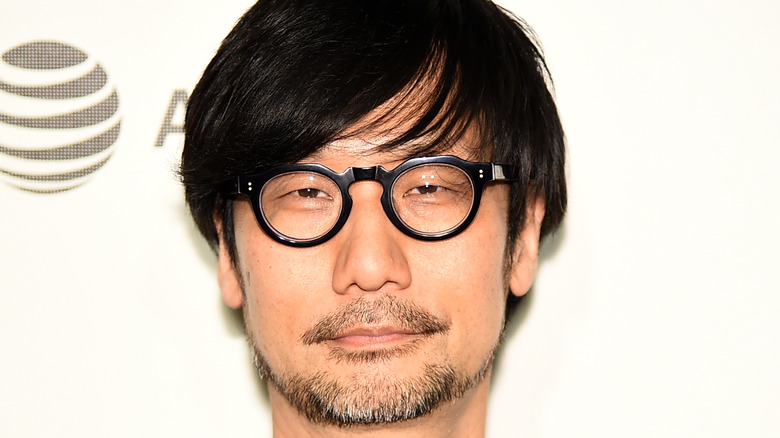
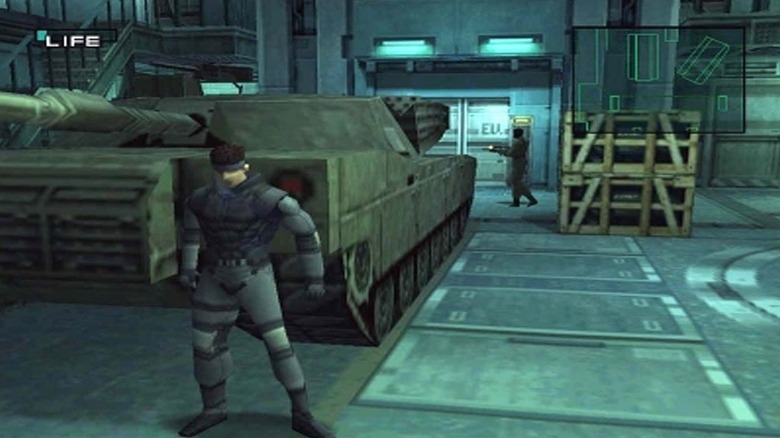
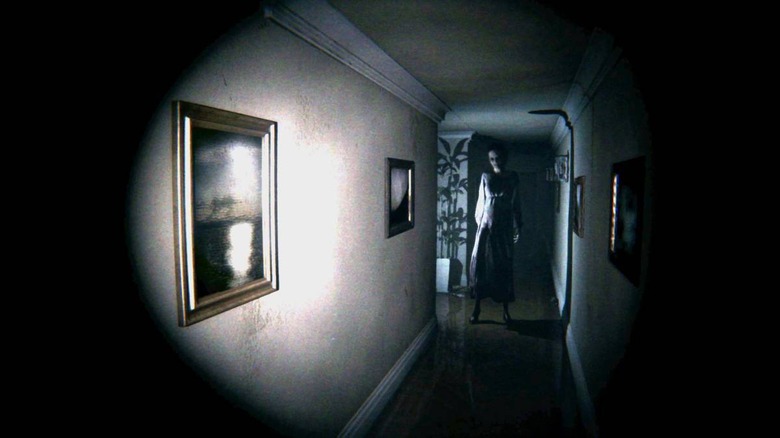
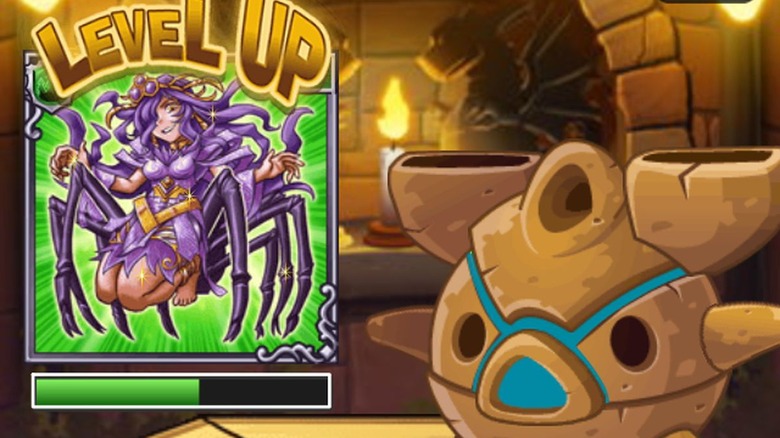
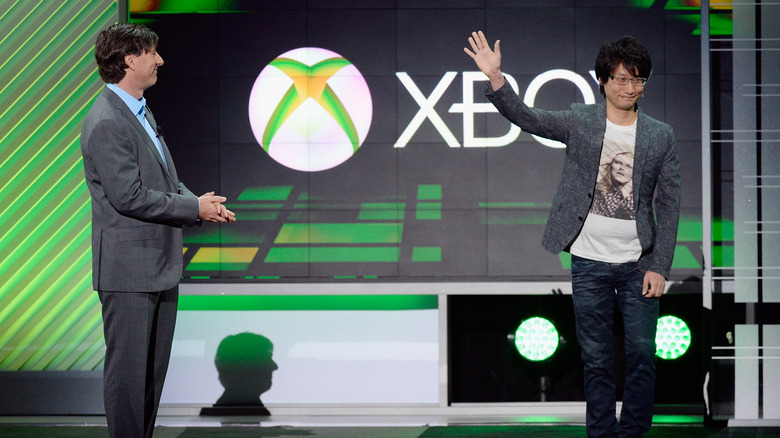
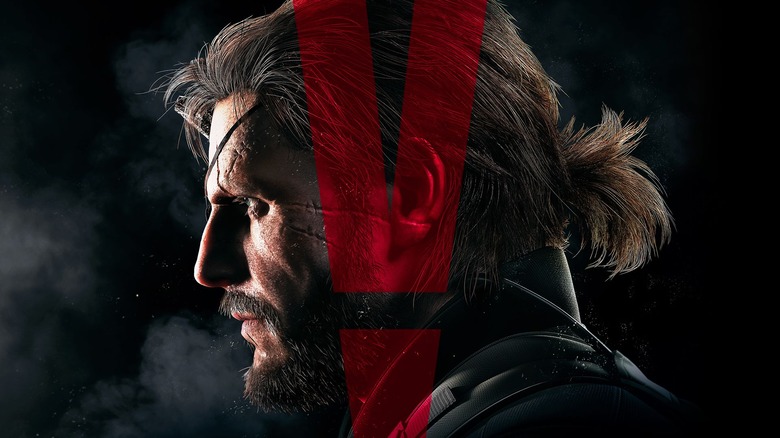
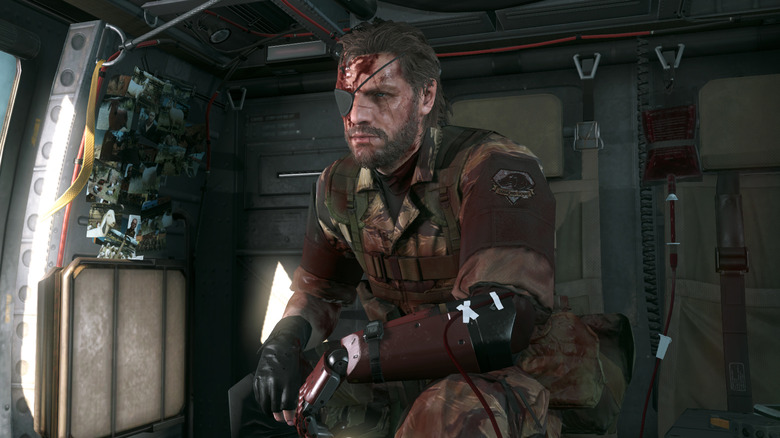
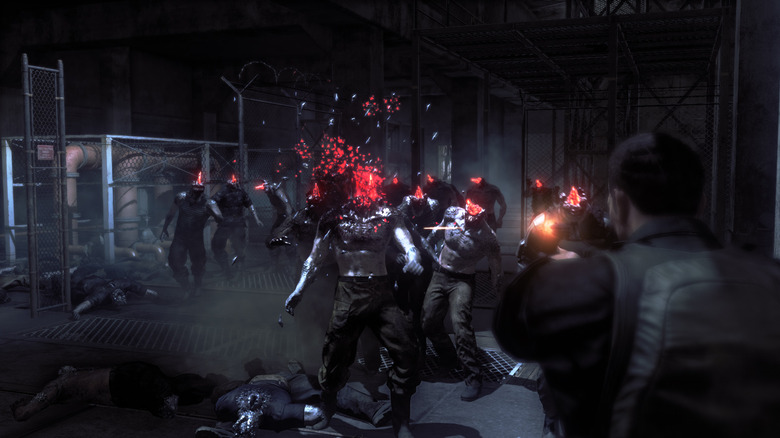
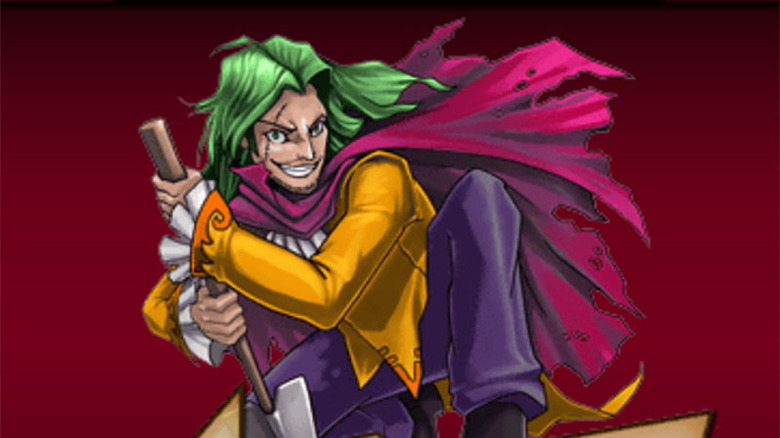

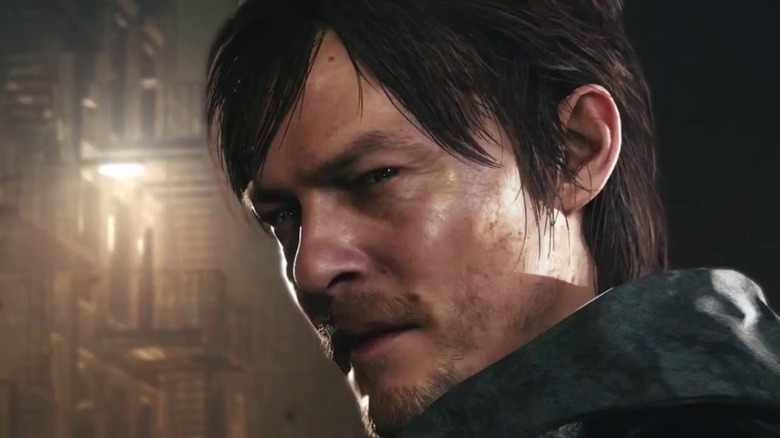
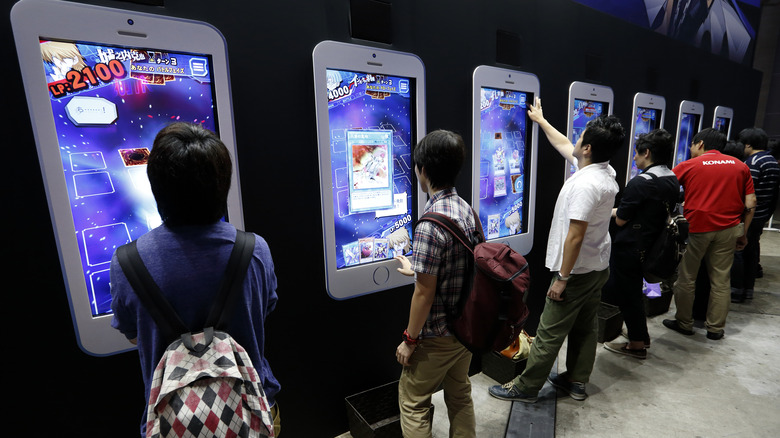
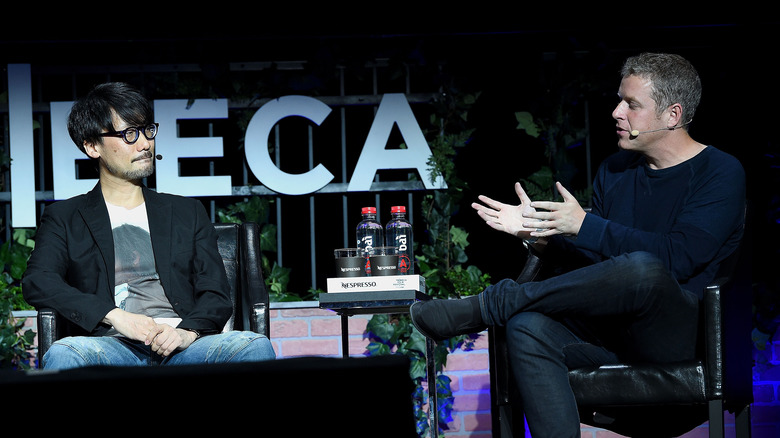
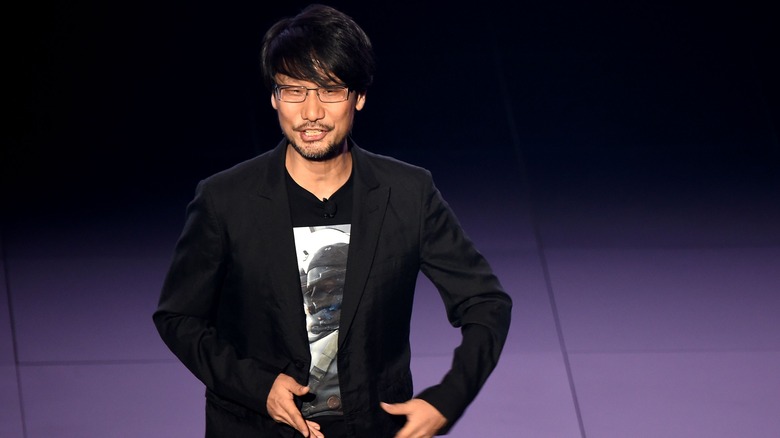
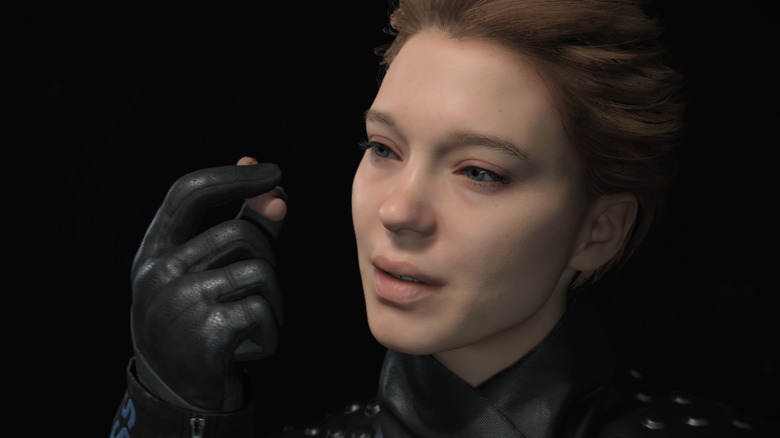
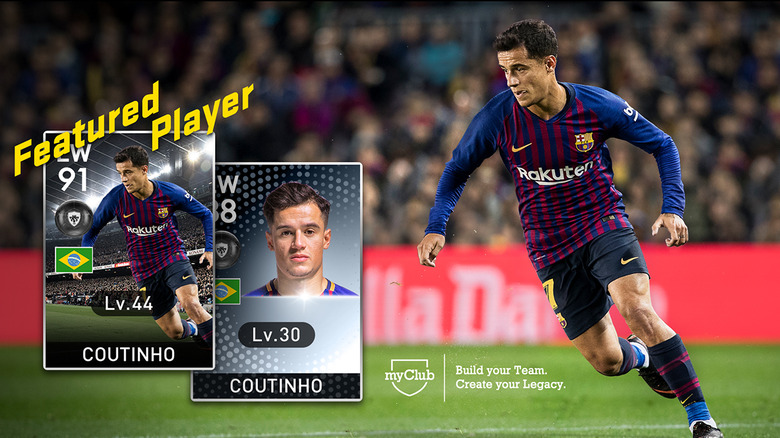
0 Response to "Does Hideo Kojima Have the Rights to Metal Gear Again"
Post a Comment